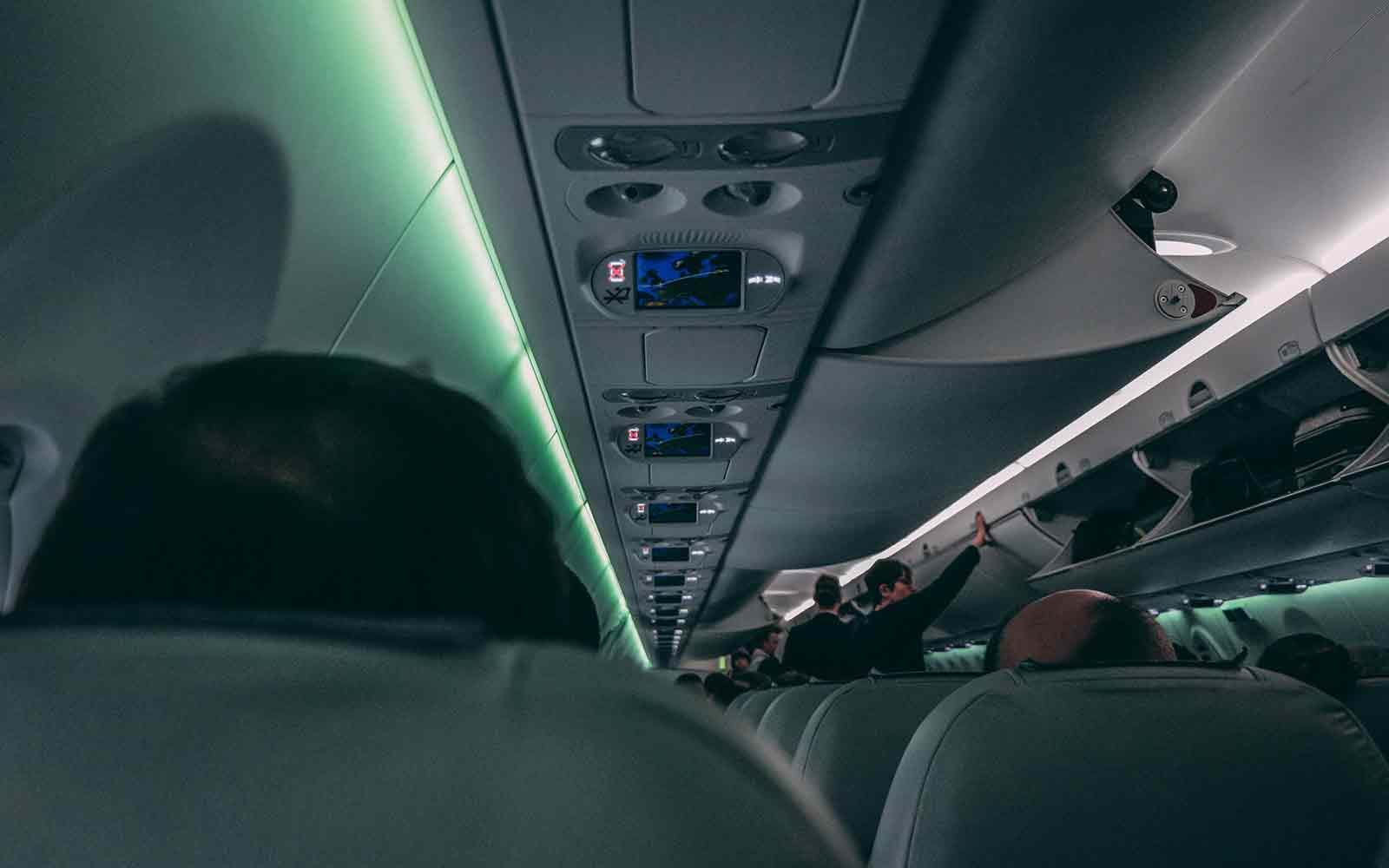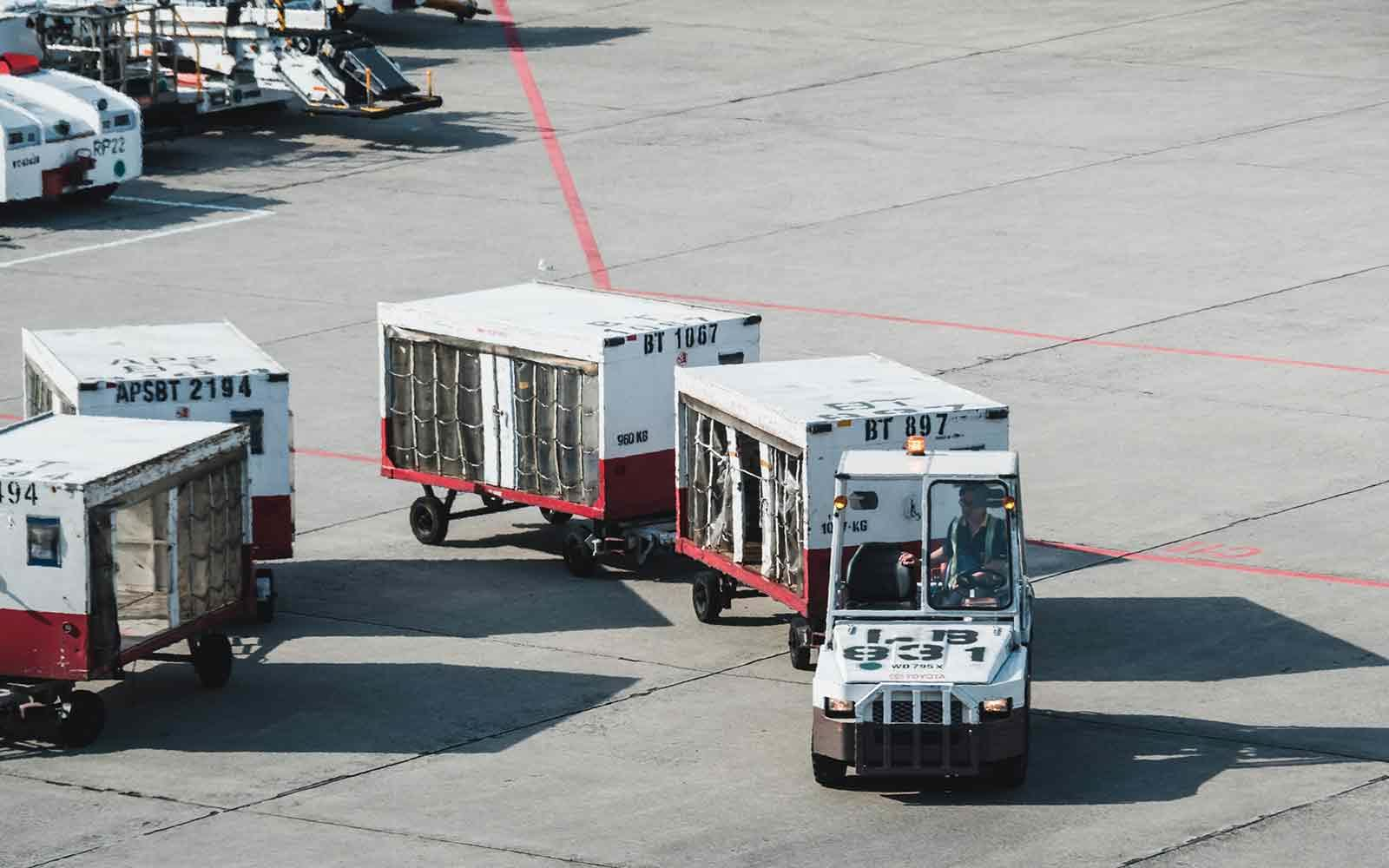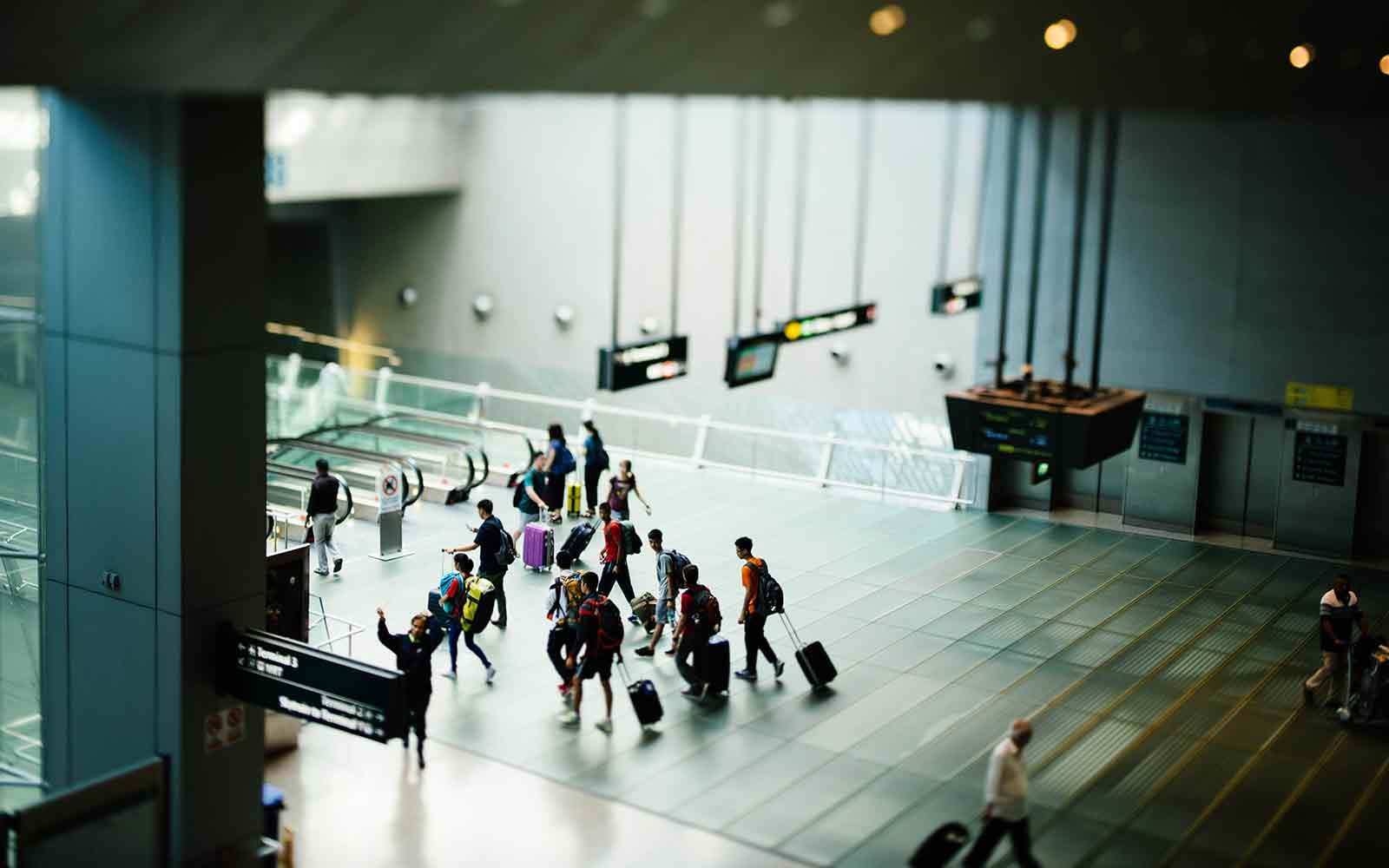
WHAT HAPPENS IF AN AIRLINE LOSES YOUR LUGGAGE
You’re standing at the baggage claim, waiting for your bag to come around the carousel. Families are pulling off dozens of bags and leaving, but you’re still waiting. Now everyone has left, and there’s one lone black bag still making the loop. Except it isn’t your black bag. You hate to admit it, but ... your luggage is lost.
Great. So what do you do if an airline loses your luggage?
Read on and know.
 Photo credit: Arthur Edelman via Unsplash.
Photo credit: Arthur Edelman via Unsplash.
How Do Airlines Lose Luggage?
Airlines lose bags in one of three ways: Transferring from one airline to another, transferring from one flight to another on the same airline, or mislabeling.
Everything here falls under the heading of an honest mistake – and actually, when you think about it, it’s a miracle that more bags aren’t lost, given the tens of thousands of unique itineraries spanning the globe in a given day.
The airlines have luggage routing down to a near-exact science, but it’s the “near” that gets you. And for all the technology that airlines have added over the last decade, luggage tracking at its heart is still a relatively low-tech enterprise.
“The system employed by the airlines needs to be one that is globally recognized, so what works in JFK with all the bells and whistles works in low-connectivity areas like India, Africa, and parts of the Far East,” Andrew Hopwood, CEO of the luggage-tracking firm HomingPIN, told the BHTP Connexions podcast in 2016. “They’re very limited in terms of what technology they can employ, so the process lacks uniqueness. It’s basically one big matching engine.”
 Photo credit: Goh Rhy Yan via Unsplash.
Photo credit: Goh Rhy Yan via Unsplash.
If An Airline Loses Your Luggage
Not so fast; let's back up and talk about what you can do before an airline loses your luggage.
If you're one of those people – you know, super-duper organized and totally with it – take pictures of the contents of your bags before you leave. Also track down receipts for any big-ticket items you might be packing and take pictures of those, as well as pictures of the items themselves.
Imagine the shock and awe on the faces of the people at the baggage office when you whip out your phone and start showing those.
Okay; back to the scene of the crime. the first thing you want to do in lost-luggage cases is to report the loss to the airline before leaving the airport.
Between the deadline for reporting missing baggage and the importance of creating a paper trail, you do not want to leave the airport before creating a report. So make your way to the Baggage Service Office and keep these things in mind:
- Service agents are going to want facts, so make sure you’re giving thorough information, now and when you may have to talk to them again.
- Your bags are most vulnerable when you switch from one carrier to another. If you lose your luggage in that process, fill out the lost-baggage form for the last carrier that got you to your destination.
- Even if the agent helping you says your bag will be on the next arriving flight, still insist on having a report filed, because you never know.
- Before you leave, get a copy of the report and/or the report number, the name of the agent who helped you, and a phone number in case you need to call the office.
- Ask for the best way to check your bag’s status, because some airlines let you track your bag online.
- Leave your name, hotel or home address, and a phone number where you can be reached.
- If you have to shop for replacement items, remember: Most lost luggage is found within 48 hours. (And if you do have to buy replacement items, save receipts so you can be reimbursed.)
- Depending on the airport and the time, there’s a chance no one will be in the Baggage Service Office, in which case you should call the airline directly and make a verbal report. Provide the same sort of information as if you were filling out a report in person, plus note the time of your call.
 Photo credit: Iswanto Arif via Unsplash.
Photo credit: Iswanto Arif via Unsplash.
What Happens In The Meantime?
Take heart: The majority of lost bags are found and returned within a few days. In the meantime, you’re entitled to reasonable lost-luggage reimbursement for expenses like toiletries and a change of clothes while you’re waiting for your delayed bag.
Also, if something like sports equipment was lost, the cost of rentals may be covered as part of an airline’s lost-luggage compensation.
Compensations vary by airline, so ask for what you deserve. Keep all your receipts and fill out the proper forms to be compensated.
Travel insurance comes in handy in situations like this. If you have AirCare from Berkshire Hathaway Travel Protection, you’ll get a flat $500 payment if your bag is delayed 12 hours or more.
In as early as a week or two, airlines will declare a bag lost and have you fill out a claim form. When filling out the paperwork, remember:
- Don't exaggerate values. If the airline believes you are lying about the value of your lost possessions, your claim can be denied outright due to fraud.
- Realize that airlines will only pay for the depreciated value of your items.
- Make copies of all the forms you fill out.
- It can take between four weeks and three months for the airline to pay for lost luggage.
- When the airline finally pays your claim, they may offer ticket vouchers instead of money. The tickets may look like a better deal, but ask about blackout dates and hidden restrictions attached to these tickets. It’s no use accepting the tickets if you can’t conveniently use them.
- Ask about getting your baggage fee refunded. The airline probably won’t offer the refund outright, so ask about it and fill out the proper form. If they ask for your baggage claim ticket, make a copy before they take it, and make sure it’s noted that you gave them the ticket.
- If you’re continually calling different agents and feel like your problem isn’t being addressed, file a complaint with the Department of Transportation, or take your issue to social media. Posting a tweet full of foul language probably won’t get you anywhere, but making a post about your issue could potentially get a quicker response than repeatedly calling an agent. (Delta Airlines in particular responds very quickly via social media.)
 Photo credit: Alejandro Escamilla via Unsplash.
Photo credit: Alejandro Escamilla via Unsplash.
How To Keep It From Happening Again
Now that you’ve gone through this experience, you might be wondering how to prevent this from happening again.
Here are some tips:
- The most common causes of lost luggage are late check-in or tight connecting flights, especially connections on different airlines. Get rid of those things, and not only will your bag more likely end up at the same destination as you, but you’ll also probably experience less travel stress.
- Make sure the agent checking your bags attaches the correct destination ticket.
- Don’t pack valuables in your checked luggage. Many airlines’ contract of carriage says the airline won’t transport “expensive or unique items,” and thus the airline is not liable for the pricey, one-of-a-kind souvenirs in your lost luggage.
- Most airlines note the maximum claim allowance on the back of your airline ticket. If you notice the airline has a low maximum claim, don’t pack your brand-new, high-tech tablet in your checked baggage.
- Label your bag on the outside and inside. Put flashy ribbons or tags on your black bag to make it more identifiable and decrease the chances of a tired businessman grabbing your bag instead of his own.
 Photo credit: chuttersnap via Unsplash.
Photo credit: chuttersnap via Unsplash.
- A packing list and a photo of your bag will make things easier when filing out reports and claim forms if your bag gets lost.
- It’s never fun to hear that you need to have receipts for big-ticket items in order to be reimbursed for them, but don’t write it off as impossible. You can and should save receipts for your big-ticket purchases. Just start a file folder for receipts at home. It’s easy and can really come in handy in times like these.
- Investing in a baggage tracker is always an option. HomingPIN ties directly into the systems of many major airlines, train lines, and hotels, and offers express return of your bag once it’s located. It’s invaluable if you’re on-the-go.
- Always be courteous to the agents and representatives you talk to. They’re not responsible for losing your bag; they’re trying to help you get it back.
Airports hold any unclaimed bags for 90 days, and after that most bags in the U.S. are sent to the Unclaimed Baggage Center in Alabama, where their contents are sorted and resold or donated to charity.
So if your bag never makes it back, at least you know it wound up someplace warm.
And the next time you have lost luggage, you’ll know how airlines lose luggage, what to do if an airline loses your luggage or if you lost your luggage at the airport, what sort of airline compensation is there for lost luggage, and what’s normal lost-luggage reimbursement.
You’ll be all set.
Questions About Travel Insurance?
Check out our online guide, "What Is Travel Insurance All About?" We've provided in-depth answers to all your travel insurance questions, starting with the basics.